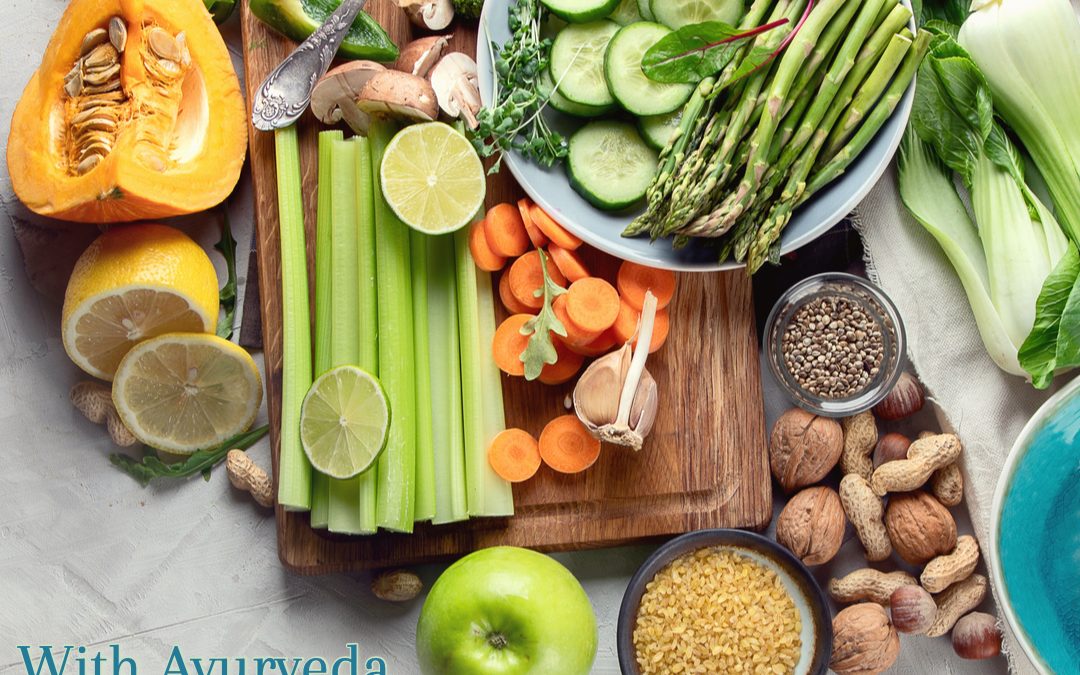Taking an Ayurvedic approach to supporting the female body as we transition through our life cycles involves balancing the stress and sex hormones through diet, lifestyle and stress management.
If underlying symptoms are present before peri menopause and menopause (PM and M) they will definitely present themselves throughout this period.
For example, if you have noticeable fluctuations in temperature through your menstrual cycle, hot flashes will be a prominent symptom of peri menopause.
If you suffer from dry skin, dryness in your digestive symptom (constipation) you will definitely feel these symptoms, possibly vaginal dryness throughout PM and M.
So with awareness we can lessen the symptoms of PM and M by maintaining balance throughout our lives. From the previous workshops, as we move through PM and M, we don’t have the same buffering or balancing affect of the Yin (cooling and moisturising) and Yang (hot and dry) qualities.
Ayurvedic Treatment firstly addresses the symptoms of PM and M through diet and lifestyle.
Is my diet and lifestyle adding to the symptoms I am feeling?
Ayurveda works on the principle that ‘like increases like’ and to create balance and alleviate symptoms by introducing the opposite qualities.
Generally diet and lifestyle are directly responsible for imbalance, so without addressing this, we don’t get to the root cause of symptoms. If diet and lifestyle changes don’t sufficiently alleviate symptoms, then we can use Ayurvedic herbal preparations and treatments.
Diet, Lifestyle and Remedies
PM and M symptoms generally are related to a depletion in the Yin. Yin (or Kapha) qualities are:
- Cool
- Moist
- Nourishing
- Lubricating
Foods with these qualities can help alleviate symptoms of heat and dryness in the body. Generally the ideal diet for PM and M Pitta – Vata balancing or Pitta reducing. Special consideration is given to alleviating excess heat and dryness in the body
| Dietary Consideration for Symptoms of Heat and Dryness | ||||
| General Guideline: |
|
|||
|
||||
|
||||
Although Pitta is aggravated with too much oil. The nourishing, moistening qualities of oil are essential in the diet. The qualities of oestrogen are cool, moistening and nourishing. Naturally your levels will drop throughout PM and M, so good quality oil is essential: ghee, olive oil, coconut oil and rapeseed oil are great. If you have a naturally small, light body type, your diet should be more dense and nourishing, but not heavy. Avoid deep frying and refined sugars and carbs: cooked grains, vegetables, pulses and stews.
|
||||
|
||||
|
||||
|
||||
|
||||
|
||||
|
||||
|
||||
|
||||
|
||||
|
||||
| Lifestyle: | Look at the pace at which you live your life. Do you feel stressed by the demands of work, family, social life or fitting in time for exercise. What do you do to relax? Some activities enhance Yin and some deplete Yin.
|
|||
|
||||
| Tastes: | Pitta is pacified by: sweet, bitter and astringent taste | |||
| Pitta can be aggravated by: sour, salty and pungent tastes – heating. | ||||
| Remedies: | Morning | |||
|
||||
|
||||
| Agni deepana: Balances digestive fire. Before meals | ||||
|
||||
| Ama Pachana: Elimination of toxins. After meal | ||||
|
||||
|
||||
|
||||
| Evening | ||||
|
||||
|
||||
| Massage: | Abhyanga (oil massage) is an essential part of Ayurvedic Therapy. As dryness is a prominent symptom of PM and M, external eleation can help alleviate the symptoms. Receiving a massage is also very relaxing and Yin enhancing. The perfect way to destress. Massaging the feet and the head with. coconut oil before bed can help alleviate heat from the body and aid sleep. | |||
| Massage with oils of opposite qualities. Coconut and sandalwood are particularly cooling. | ||||
| Recipe Ideas: |
|
|||
| Spices: Whole spices: coriander, cumin, fennel, saffron, cinnamon, cardamon, turmeric (sparingly), asafoetida, fenugreek. | ||||
| Vegetables: Green leafy vegetables, broccoli, beans, squash and courgette. Observe vegetables which can be heating: tomatoes, carrots, onions (raw), garlic. Cook with good quality oil, add spices, vegetables, grains and pulses. Not too much red meat. White meat or fish occasionally. | ||||

